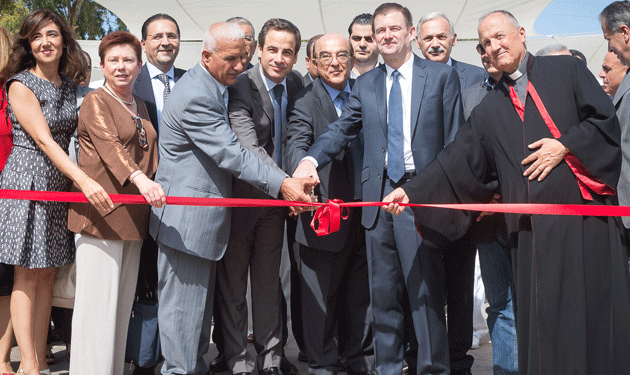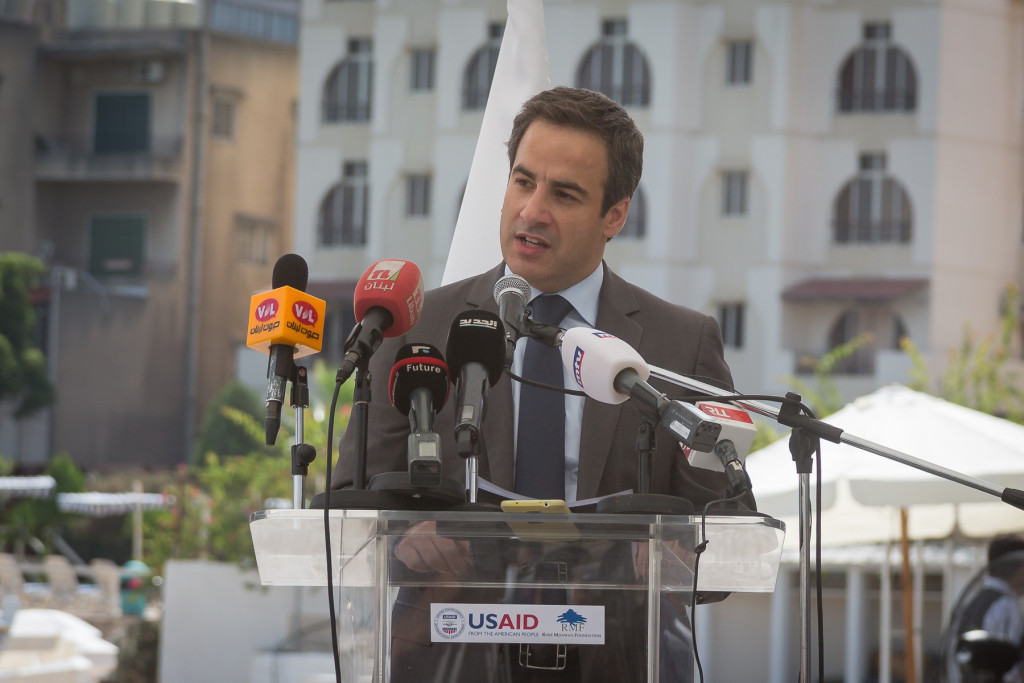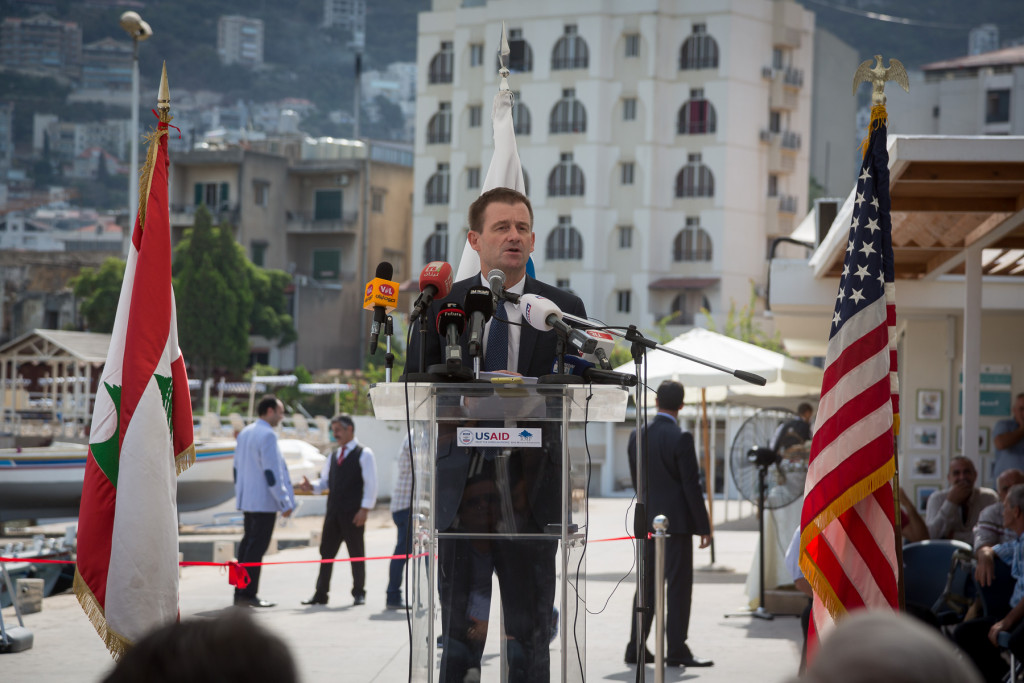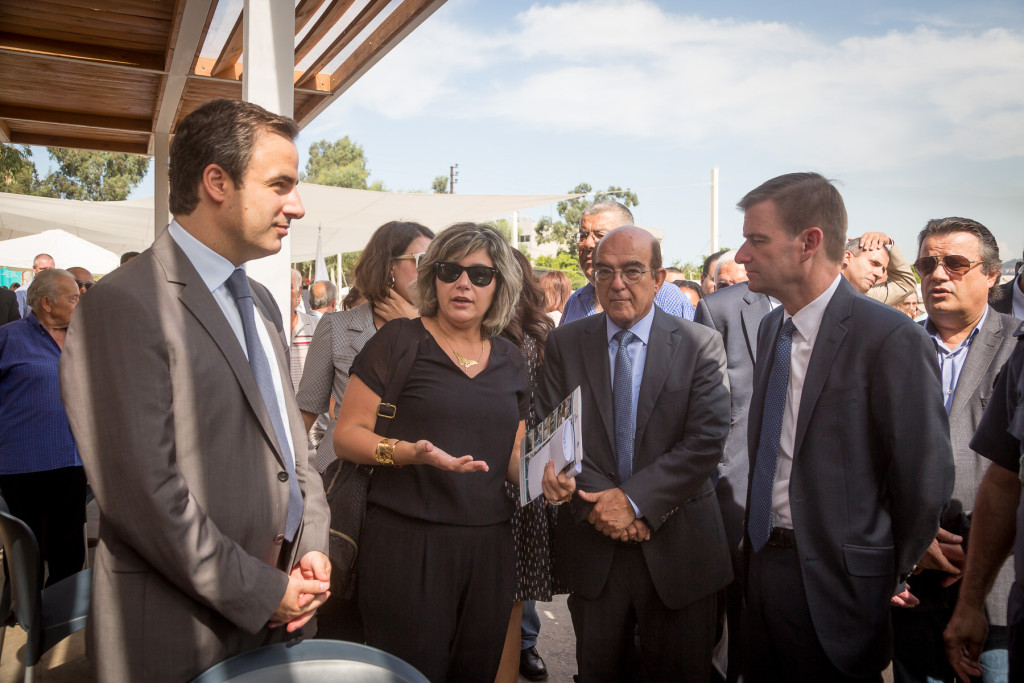Michel Moawad, Executive Director of the Rene Moawad Foundation, called Tuesday on rival parties in the Lebanese government to refrain from trading accusations over controversial issues, urging them to take action to empower citizens and support sustainable development across Lebanon.
Moawad made his remarks during the inauguration ceremony of a US-funded project to rehabilitate fishermen facilities at Jounieh port.
The project is part of the Building Alliance for Local Advancement, Development, and Investment (BALADI) program, and was funded by the United Stated Agency for International Development (USAID) and implemented by the René Moawad Foundation (RMF).
“This project is a prime example of the foundation’s commitment to human capacity building as to enable people to live freely in their land under a democratic regime,” Moawad said at the inauguration ceremony.

The ceremony, which was held at Jounieh port, was attended by Bishop John Al Khoury, representing Maronite Patriarch Beshara Butros Al Rai, US Ambassador to Lebanon David Hale, USAID Mission Director Carolyn Bryan, Keserwan MP Neemat Abi Nasr, Jounieh Mayor Antoine Frem, representative of the Head of the Office of Common Administration at the Ministry of Interior and Municipalities Racha Hourani, representatives of the Fishermen’s Coop, local officials and members of the community.
Freim said the project is part of a comprehensive strategy to support fishermen and to protect marine resources through the adoption of the latest environmental and scientific standards.
Head of Jounieh’s Fishermen COOP Malek Tayeh praised all parties that contributed to the success of the project, which he said was vital to the survival of fishermen.
Moawad said the project represents a cornerstone of the RMF’s strategy in terms of promoting sustainable development and building human capacity.
“This project will improve the living conditions of fishermen in Jounieh, Tabarja, Bouar, and surrounding areas and will affect the lives of more than 150 families; families that lack basic rights such as social security and health care. Thus, it is our responsibility to support them, protect them and empower them so they can remain deep-rooted in their land,” Moawad told attendees.
While the project will leave a big positive impact on local communities, Moawad said its cost was close to only $400,000.
“This is an additional proof of the centralized government’s failure. Despite spending billions of dollars, the government has failed to solve the trash crisis and to provide electricity around the clock as well as to ensure uninterrupted water supply to citizens,” Moawad said.
On the other hand, the project proves that the model of cooperation between local authorities, civil society groups and international donor organizations is a successful, Moawad argued, urging the implementation of administrative decentralization as stipulated in the constitution in order to bolster transparency and enable local authorities both financially and legally to undertake development projects.
“Thanks to this tripartite cooperation, this project and many similar ventures across Lebanon has been successfully implemented,” Moawad said, praising Jounieh municipality for undertaking the project with the support of USAID.
“This project proves once more that our mission at the Rene Moawad Foundation transcends geographic, political and sectarian boundaries as we seek to provide a more promising future to the Lebanese regardless of their affiliations,” he said.
Ambassador Hale highlighted the importance of successful partnerships with local communities and municipalities, noting that the US has offered $166 million in funding for small and medium sized enterprises.
The BALADI Program extends for five years until September 2017. The program currently provides support for 17 municipalities seeking to implement development projects that will benefit 58 towns and 100,000 individuals across Lebanon. In 2015, the program will provide support for an additional 40 municipal-led projects.










 العربية
العربية